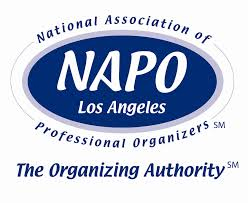The Mass-Media Madhouse
(Press-Central For Handy Soundbites, Useful Info,
And A Good Wet-Your-Pants Laugh)
Home / The Mass-Media Madhouse
(Press-Central For Handy Soundbites, Useful Info,
And A Good Wet-Your-Pants Laugh) / Professional Organizer’s Blog Carnival / As Published In Professional Organizers Blog Carnival --
Your Emergency File
As Published In Professional Organizers Blog Carnival —
Your Emergency File

No one likes thinking about the bad things that can happen in life — getting sick or hurt, the death of a loved one, having a disaster destroy everything you own. And while organized paperwork won’t lessen the shock/grief of an emergency, it can help you get your life back on track quicker and easier.
Making It A Priority
If you haven’t already created an “emergency file” for your family, move this to the top of your to-do list (right up there with ensuring that your will is updated). This is one of those “worry about it now so you won’t have to worry later” type projects. You probably won’t access this file often, but you’ll be glad to have it when you need it.
What To Include
Your emergency file should contain all of the most important information about your life — your finances, legal obligations, insurance coverage, health history, and personal data. Anything and everything you might need to access during a crisis. But you only want to include only the essentials — like a distilled-down version of your filing cabinet, without the clutter! The organizational system you use is up to you (a binder with divider tabs for each section, an accordion file, or a file box with a lid and a handle) — just as long as it’s portable. And be sure to keep your emergency file stored within easy reach — you need to be able to “grab and go” if something unexpected happens.
Calling In The Red Cross
When a disaster strikes, the first people on the scene are usually the Red Cross — bringing in supplies, providing aid, and helping people to put their lives back in order. Think of your emergency file as your own personal Red Cross volunteer, there to help you regain control during chaotic and difficult times. However, for this volunteer to be of any use to you, you must provide him or her with the right tools and information up front. Think about the paperwork you would want on hand during a serious emergency or when trying to recover after a disaster. What kind of information would the police and hospital, insurance agents and mortgage company, banks and financial institutions ask you for? Your goal is to bring these items together into one organizational system.
Vital Records
- copies of birth certificates/adoption records for each family member
- copies of marriage licenses, drivers licenses, and passports for each
- copies of all property and auto records — deeds, leases, titles
- copies of all property/umbrella insurance policies
- document locator (tells where originals/off-site paperwork are stored)
Financial Information
- list of all bank account numbers
- copies of the front and back of each credit card
- list of all investment account numbers
- list of all retirement/pension account numbers
- detailed information about any current income/benefits
- detailed information about any outstanding mortgages/loans
Medical Information
- copies of health/life/ disability insurance cards and policies
- medical history for each family member
- list of medications and prescriptions, including dose and pharmacy
- details about any ongoing medical conditions and treatments
Contacts
- friends and family to reach in case of emergency
- neighbors who have access to your house
- financial institutions, insurance companies, and legal advisors
- physicians, specialists, hospitals, and other healthcare providers
- employers and benefits administrators
Setting Up Your Emergency File
The organizational system you use is up to you — some people prefer a binder with divider tabs for each section, some like a file box with a lid and handle, others do better with an accordion file. Just make sure that your system is portable. Don’t put this information in hanging files in a drawer — you need to be able to “grab and go” if something unexpected happens.
A Few Final Words
Remember that most of these documents will be copies. Original deeds, birth certificates, insurance policies should be stored in a fire safe or safe deposit box, as a back up. And be sure to let the important people in your life (like family, close friends, and professional advisors) know about your emergency file — where it is stored and what it contains, should they need to access it for you. Just a little bit of preparation can make a huge difference in case of an emergency.
Click here for reuse options!
Copyright 2001 RamonaCreel.com
 PS: Wanna instantly rack up some serious virtual cred? I've made it easy for you to share this content with your social networking friends, e-mail it to your peeps, or republish it in your own blog (thereby showing off how smart you are) with these links.
PS: Wanna instantly rack up some serious virtual cred? I've made it easy for you to share this content with your social networking friends, e-mail it to your peeps, or republish it in your own blog (thereby showing off how smart you are) with these links.
(iCopyright widget here)
"I Have More To Say About This... No Surprise!"
If you would like to reprint this page, please contact me






Great stuff, as always, Ramona. Emergency preparedness isn’t just about floods and ice storms but about everyday life events like illness and death too.
What a great and well organized list, Ramona! The way you’ve prepared it makes the collecting of these items (copies) seem very doable. Thanks so much for sharing this one.